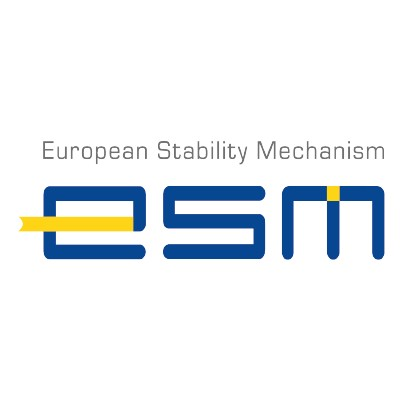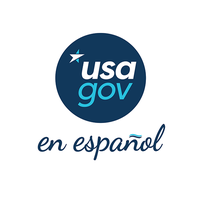Navigating the Storm: The UK’s Response to Trump’s Tariffs
April 4, 2025, 4:07 am

Location: Belgium, Brussels-Capital, Brussels
Employees: 1001-5000
Founded date: 1958
Total raised: $310.85K

Location: United Kingdom, Wales, Newport, Wales
Employees: 1001-5000
Founded date: 1954

Location: United States, District of Columbia, Washington
Employees: 10001+
Founded date: 2000
The air is thick with tension. President Trump has unleashed a wave of tariffs, sending ripples through the global economy. The UK finds itself at a crossroads, balancing the need for a strategic response with the desire to maintain strong ties with its largest trading partner. Chancellor Rachel Reeves and Business Secretary Jonathan Reynolds are at the helm, navigating these turbulent waters.
Reeves has made it clear: the UK will not rush into action. Quick headlines are not the goal. Instead, the focus is on securing a solid economic agreement with the United States. This is a long game, not a sprint. The Chancellor’s words echo a sense of caution. She understands the stakes. A hasty response could jeopardize the delicate negotiations already underway.
The looming tariffs are not just numbers on a spreadsheet. They represent potential barriers to trade, obstacles that could hinder growth. Reeves emphasizes that the UK is an open trading economy. The impact of tariffs on the UK is less about immediate numbers and more about the broader global picture. It’s a chess match, and every move counts.
Meanwhile, Prime Minister Keir Starmer is preparing for all eventualities. The phrase “Liberation Day” hangs in the air, a reminder of the unpredictability of Trump’s announcements. The UK is bracing itself, ready to adapt to whatever comes next. The government is modeling scenarios, assessing risks, and preparing for the worst while hoping for the best.
Reynolds offers a glimmer of optimism. He believes the UK is in a better position than many other countries facing Trump’s tariffs. The 10 percent rate imposed on UK exports is indeed disappointing, but it’s a far cry from the 20 percent on the EU or the staggering 34 percent on China. The UK’s relative advantage is a small comfort in a challenging landscape.
Yet, Reynolds is not blind to the challenges ahead. He acknowledges that any barrier to trade with the US is a setback. The relationship between the UK and the US is vital. It’s a lifeline, and any disruption could have cascading effects. The business community is looking for calm and reason. They urge the government not to overreact but to stay engaged in dialogue.
The tariffs are a wake-up call. They signal a significant shift in the global trading system. The US is redefining its role, and the UK must adapt. Reynolds warns against framing the situation as a vindication of Brexit. This is bigger than any political debate. It’s about the future of trade and economic stability.
The UK government is not sitting idle. Plans are in place to respond to the tariffs. They are gathering evidence from businesses, assessing the impact, and preparing to take necessary actions. The goal is to equip the UK with the tools needed to navigate this new landscape. It’s a proactive approach, one that seeks to mitigate damage while fostering resilience.
As the clock ticks down to Trump’s announcement, the uncertainty looms large. The global economy is on edge. The potential for chaos is real. The Chancellor’s warning resonates: even if the UK avoids tariffs, it’s not out of the woods. The interconnectedness of the global economy means that what happens in one corner of the world can reverberate elsewhere.
The European Union is also preparing for a response. Commission chief Ursula von der Leyen has indicated that a strong plan is in place to retaliate against Trump’s tariffs. The EU is not a passive player in this game. It’s a formidable force, and its actions will influence the dynamics of international trade.
In this high-stakes environment, the UK must tread carefully. The balance between assertiveness and caution is delicate. The government’s strategy hinges on maintaining open lines of communication with the US while preparing for potential fallout. It’s a balancing act, one that requires deft maneuvering and strategic foresight.
The road ahead is fraught with challenges. The tariffs are just one piece of a larger puzzle. The UK must consider the global economic landscape, the responses of other nations, and the potential for further escalation. The situation is fluid, and adaptability will be key.
As the dust settles from Trump’s announcement, the UK will need to reassess its position. The focus will shift to long-term strategies. What does the future hold for UK-US trade relations? How will the government navigate the complexities of a changing global economy? These questions linger in the air, waiting for answers.
In the end, the UK’s response to Trump’s tariffs will define its economic trajectory. It’s a moment of reckoning, a test of resilience and strategy. The stakes are high, and the world is watching. The UK must rise to the occasion, charting a course through the storm with determination and clarity. The future is uncertain, but with careful planning and strategic action, the UK can emerge stronger on the other side.
Reeves has made it clear: the UK will not rush into action. Quick headlines are not the goal. Instead, the focus is on securing a solid economic agreement with the United States. This is a long game, not a sprint. The Chancellor’s words echo a sense of caution. She understands the stakes. A hasty response could jeopardize the delicate negotiations already underway.
The looming tariffs are not just numbers on a spreadsheet. They represent potential barriers to trade, obstacles that could hinder growth. Reeves emphasizes that the UK is an open trading economy. The impact of tariffs on the UK is less about immediate numbers and more about the broader global picture. It’s a chess match, and every move counts.
Meanwhile, Prime Minister Keir Starmer is preparing for all eventualities. The phrase “Liberation Day” hangs in the air, a reminder of the unpredictability of Trump’s announcements. The UK is bracing itself, ready to adapt to whatever comes next. The government is modeling scenarios, assessing risks, and preparing for the worst while hoping for the best.
Reynolds offers a glimmer of optimism. He believes the UK is in a better position than many other countries facing Trump’s tariffs. The 10 percent rate imposed on UK exports is indeed disappointing, but it’s a far cry from the 20 percent on the EU or the staggering 34 percent on China. The UK’s relative advantage is a small comfort in a challenging landscape.
Yet, Reynolds is not blind to the challenges ahead. He acknowledges that any barrier to trade with the US is a setback. The relationship between the UK and the US is vital. It’s a lifeline, and any disruption could have cascading effects. The business community is looking for calm and reason. They urge the government not to overreact but to stay engaged in dialogue.
The tariffs are a wake-up call. They signal a significant shift in the global trading system. The US is redefining its role, and the UK must adapt. Reynolds warns against framing the situation as a vindication of Brexit. This is bigger than any political debate. It’s about the future of trade and economic stability.
The UK government is not sitting idle. Plans are in place to respond to the tariffs. They are gathering evidence from businesses, assessing the impact, and preparing to take necessary actions. The goal is to equip the UK with the tools needed to navigate this new landscape. It’s a proactive approach, one that seeks to mitigate damage while fostering resilience.
As the clock ticks down to Trump’s announcement, the uncertainty looms large. The global economy is on edge. The potential for chaos is real. The Chancellor’s warning resonates: even if the UK avoids tariffs, it’s not out of the woods. The interconnectedness of the global economy means that what happens in one corner of the world can reverberate elsewhere.
The European Union is also preparing for a response. Commission chief Ursula von der Leyen has indicated that a strong plan is in place to retaliate against Trump’s tariffs. The EU is not a passive player in this game. It’s a formidable force, and its actions will influence the dynamics of international trade.
In this high-stakes environment, the UK must tread carefully. The balance between assertiveness and caution is delicate. The government’s strategy hinges on maintaining open lines of communication with the US while preparing for potential fallout. It’s a balancing act, one that requires deft maneuvering and strategic foresight.
The road ahead is fraught with challenges. The tariffs are just one piece of a larger puzzle. The UK must consider the global economic landscape, the responses of other nations, and the potential for further escalation. The situation is fluid, and adaptability will be key.
As the dust settles from Trump’s announcement, the UK will need to reassess its position. The focus will shift to long-term strategies. What does the future hold for UK-US trade relations? How will the government navigate the complexities of a changing global economy? These questions linger in the air, waiting for answers.
In the end, the UK’s response to Trump’s tariffs will define its economic trajectory. It’s a moment of reckoning, a test of resilience and strategy. The stakes are high, and the world is watching. The UK must rise to the occasion, charting a course through the storm with determination and clarity. The future is uncertain, but with careful planning and strategic action, the UK can emerge stronger on the other side.